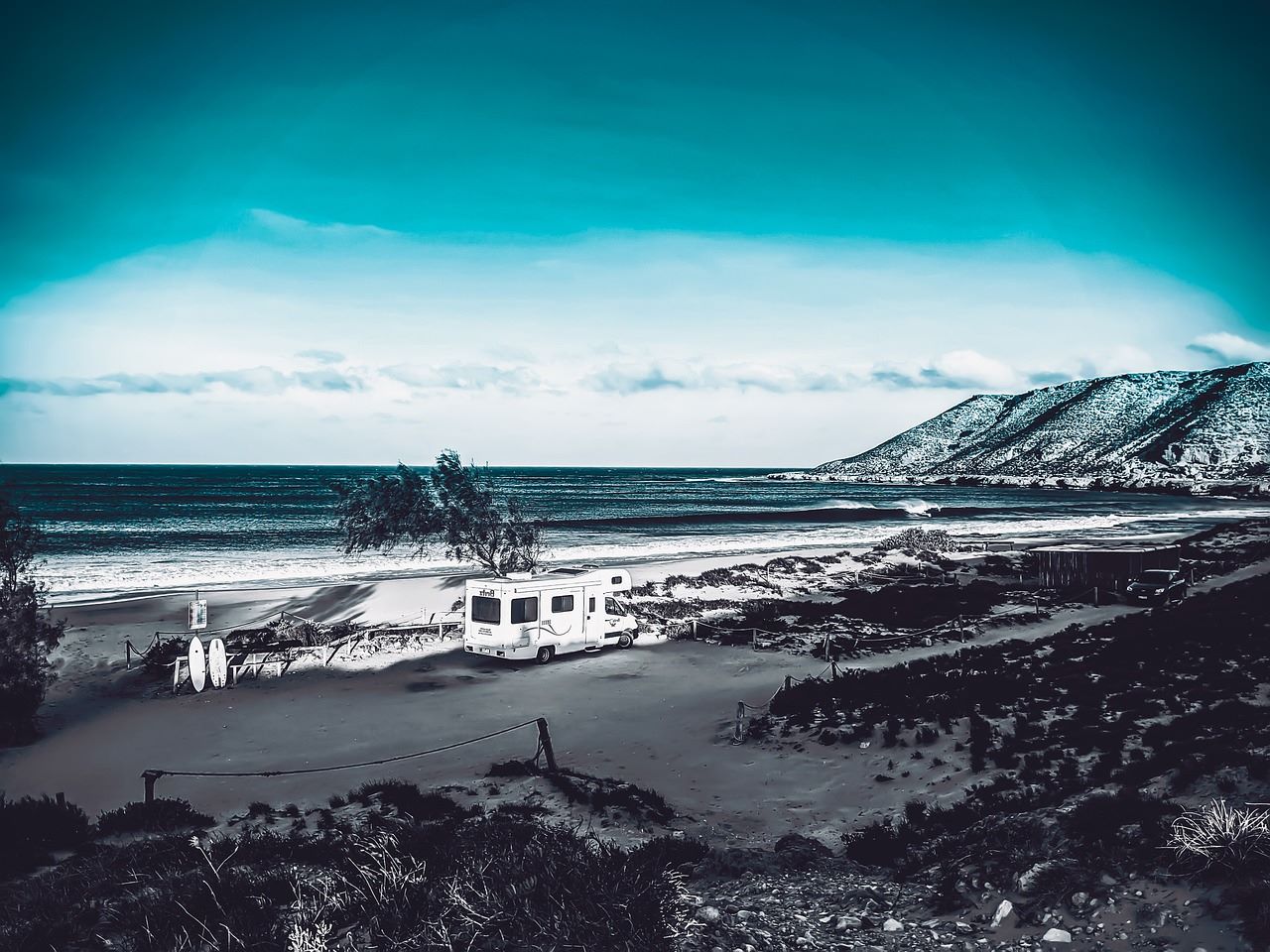
The first time I tried boondocking, I was wildly underprepared.
I’d parked my RV on a stretch of public land in Arizona, miles from the nearest town, with nothing but the sound of the wind and a sunset that painted the sky every shade of orange.
But as the night wore on, my excitement turned to frustration.
I ran out of water faster than expected, my RV battery drained from powering lights and appliances, and I woke up to find my fridge wasn’t running. Lesson learned.
That was years ago, and now boondocking has become my favorite way to camp.
Here’s what I’ve picked up along the way—secrets and strategies I wish I’d known before heading off the beaten path.
Scout the Perfect Spot—Legally
Finding the ideal boondocking location is an art.
Public lands, like those managed by the Bureau of Land Management (BLM) or the U.S. Forest Service, are prime spots.
But not every beautiful pull-off is a legal campsite.
One of the best tools I’ve discovered is the Campendium app.
It’s packed with reviews of free camping areas, complete with GPS coordinates and tips from other RVers.
I’ve also started using FreeRoam, an app that overlays BLM and National Forest land boundaries on maps, so I can confirm whether a spot is public land.
Pro tip: Arrive early. It’s much easier to scout a safe, level spot when there’s daylight to guide you.
Plus, you’ll have time to set up before the sun dips behind the horizon.
Master Resource Management
Off-grid camping is all about stretching your resources—water, power, and waste capacity—so you can stay out longer without making a trip back to civilization.
For water, I’ve invested in a portable water bladder that connects to my RV’s fresh water tank. It allows me to refill my supply without packing up camp.
For power, solar panels have been a game-changer.
Even a modest setup, like a 100-watt portable panel, can keep your RV batteries topped off for lights, fans, and even a small fridge.
The gray and black tanks can be a sticking point for many boondockers.
One trick I’ve learned is to use biodegradable wipes for quick cleaning instead of running water.
As for gray water, a collapsible dish tub makes it easy to catch and dispose of wastewater responsibly without filling up your tank.
Stay Comfortable—Even Without Hookups
Comfort isn’t just a luxury when boondocking—it’s what makes the experience sustainable. Small adjustments can make all the difference.
Start with temperature control. I always park with my RV’s biggest windows facing away from the sun to keep the interior cooler.
Reflective window covers are also a lifesaver in the desert heat, while thick thermal curtains help keep things cozy on chilly nights.
For cooking, I rely on a combination of a small propane grill and an old-fashioned Dutch oven.
There’s nothing quite like slow-cooked meals under an open sky—especially when your fridge space is limited.
One of the best additions to my setup has been a composting toilet. It eliminates the need to constantly empty the black tank, giving me more flexibility for longer stays.
Plan for Connectivity—or Disconnect with Intention
Being off the grid doesn’t have to mean being completely disconnected.
A cell signal booster can work wonders in remote areas, pulling in faint signals to keep you connected in case of emergencies.
I use mine sparingly—just enough to check the weather or download a new audiobook.
But sometimes, the best part of boondocking is embracing the silence.
No notifications, no distractions, just the sound of birds in the morning and the wind through the trees. It’s a reset I didn’t know I needed until I started camping this way.
Pack the Essentials—and Then Some
When you’re boondocking, there’s no running to the store if you forget something.
Over time, I’ve developed a checklist of essentials that keep me comfortable and prepared for almost anything.
Top of the list: extra propane, a reliable first aid kit, and tools for basic RV repairs. I also carry a small portable fire extinguisher, just in case.
For peace of mind, I’ve added a GPS device that works offline, so I can find my way back to camp even without a signal.
And don’t forget creature comforts. A lightweight hammock, a good book, and a pair of binoculars for stargazing are my non-negotiables.
When you’re miles from city lights, the night sky puts on a show like no other.
Boondocking isn’t just camping; it’s an exercise in self-sufficiency and discovery.
It’s waking up to sunrises that are yours alone, sipping coffee as the world slowly comes to life, and falling asleep to the kind of quiet that feels like a luxury.
Sure, it takes preparation and a bit of trial and error, but once you find your rhythm, it’s hard to imagine camping any other way.
So pack your RV, head for the open road, and leave the hookups behind. Adventure is waiting—you just have to go find it.










